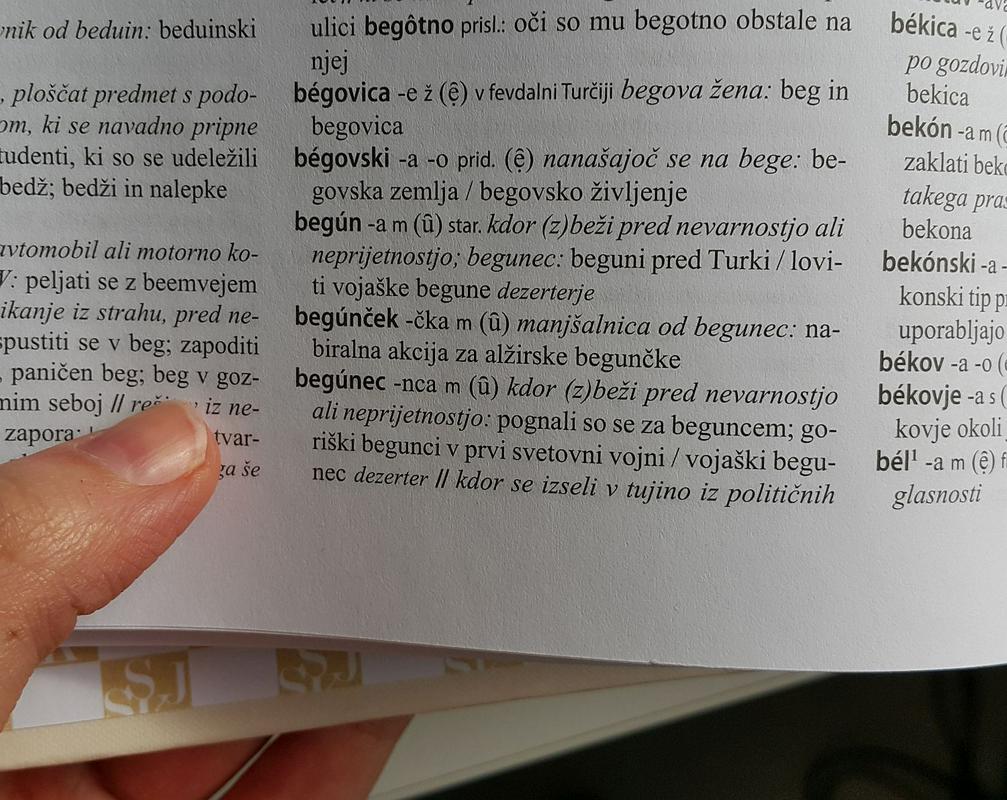
The Fran Ramovš Institute for the Slovenian Language at the Slovenian Academy of Arts and Sciences chose ten candidate words among those submitted by the public. And the word of the year certainly captures the zeitgeist of the past year.
More than a hundred people submitted nominations for the word of the year, which the Scientific Research Center of the Academy collected between December 1 and 20. Ten words that impressed the committee and made it into the final round were, in no particular order: "prekarec" (precarious worker), "trumpizem" (Trumpism), "begunec" (refugee), "uberizacija" (Uberization), "zarecilkirati se" (to recycle oneself), "deležnik" (participant), "družina" (family), "približnjakarstvo" (sloppiness or imprecision), "žica" (wire), and "zdravje" (health).
More than 1100 people voted for one of the finalists. The popular vote ended up giving the "word of the year" title, intended for the word that left the deepest mark on the previous year, either positively or negatively, to the word begunec – refugee.
The second place went to žica (wire), while third place went to prekarec (precarious worker).
"The choice of ‘refugee’ as the word of the year gives me hope that basic values, such as the respect of human rights, solidarity, and humanity, still play an important role in our society. These values state a loud NO to a world of walls, razor wire, fear, and hate – a world that must not become our reality," said Dr. Jure Gombač of the Slovenian Migration Institute at the Slovenian Academy of Arts and Sciences.
How was the year summarized in English- and German-speaking countries?
The American dictionary publisher Merriam-Webster tried to find their word of the year someplace between dreams and nightmares: the adjective surreal ended up winning. It joined the words post-truth (chosen by the Oxford Dictionary) and xenophobia (the winner on the website Dictionary.com).
The term postfaktisch was also the word of the year in Germany. It is the approximate translation of "post-fact," as chosen by Oxford Dictionaries. (By the way, "refugee" was Germany’s word of 2015). In Austria, meanwhile, a far more complicated word was chosen: Bundespräsidentenstichwahlwiederholungsverschiebung, which refers to a delay in the repeat election of the federal president. This word, which is an ironic statement on Austria’s election saga, was chosen as the winner by 10,000 participants in an online vote.
A. J.; Translated by J. B.

































































